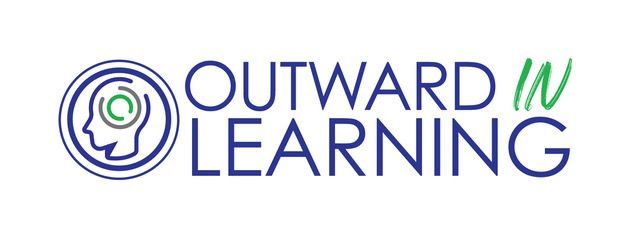Advising & Coaching
In higher education, there are several publications, research, theories and ideas on how to increase student retention and promote success. Some have seen success, and others have not, and with so many constant variables that are changing within the student body, it can be hard to distinguish what works.
One thing is for sure—, (first-year) students in particular have a myriad of issues they contend with as they pursue their degree in higher education. These issues stem from what classes to take, what major to choose, how many credits to take, financial aid, living arrangements, and forming new friendships, just to name a few.
One of the contacts students will have throughout their college journey is their advisor. The advisor is generally assigned to students based on a major or program. The advisor in many cases can be a guide for a student to select courses and design a pathway to progress through their college career. Advisors can help students chart a trajectory on what general education or major courses to select to fulfill program requirements.
Unfortunately, on occasion, some students have been misled by and unfairly
Unfortunately, on occasion, some students have been misled by and unfairly
influenced to divert from their academic or career goals. Listen to my podcast episode My Journey and Path In Hospital Administration with Eric Williams, (my younger brother) where he shares about how an advisor attempted to minimize his
aspirations to attend graduate school, telling him to return home after he graduates
and to find an entry level position in his degree field. However, what the advisor did not know was that my brother is resilient and has a growth mindset; he found a solution as he went through the steps of seeking a different advisor that who would support his vision. This worked out, as he was re-assigned to a new advisor which turned out to be the right choice for him— as this advisor supported his vision based on his performance and wrote his letter of recommendation for him to attend graduate school. The two comparable outcomes were very different, and the second advisor took on more of a “coaching approach” and in provided guidance and support in preparing him for the next level in his education.
There is a term used in higher education called “intrusive advising". The Oxford English Dictionary defines intrusive as “causing disruption or annoyance through being unwelcomed or uninviting.” I’m not sure if that is the type of advising that will be effective with many students. However, I do believe some students require additional support, supervision and encouragement to help them reach their academic goals. I believe that most students are put off by this and may feel their interactions with their advisor as a burdensome and a formality they must endure to proceed through their program. Of course, there are some advisors who go the extra mile and support their students beyond the scope of registering for classes.
But with so many students to account for, scheduling conflicts, institutional
There is a term used in higher education called “intrusive advising". The Oxford English Dictionary defines intrusive as “causing disruption or annoyance through being unwelcomed or uninviting.” I’m not sure if that is the type of advising that will be effective with many students. However, I do believe some students require additional support, supervision and encouragement to help them reach their academic goals. I believe that most students are put off by this and may feel their interactions with their advisor as a burdensome and a formality they must endure to proceed through their program. Of course, there are some advisors who go the extra mile and support their students beyond the scope of registering for classes.
But with so many students to account for, scheduling conflicts, institutional
guidelines, and student quotas, it can be difficult for advisors to concentrate their time and effort on the students who may need them the most. Keep in mind this is also contingent on whether the student accepts the responsibility to actually meet with their advisor.
Success coaching has been utilized in higher education for a few decades at some
Success coaching has been utilized in higher education for a few decades at some
institutions and is gaining more recognition as colleges are struggling with the retention of their students. According to the National Student Clearinghouse Research Center, the retention rate for public, four-year institutions in higher education is 76.3% . That means about 1 in 4 students left their school to study elsewhere — or nowhere at all.
What if student coaching was an active approach for student development in college, paired with advising? There is a different objective when it comes to the relationship and responsibility between an advisor and a coach. For example, think about the difference between a financial advisor or financial coach, nutrition advisor (dietician) or nutrition coach, or life advisor or life coach. With a coach, you develop a relationship of trust, guidance, and accountability. In this case, a student builds a connection with the coach to improve their academic skills for success.
A student must feel they can trust the coach to share their academic struggles and weaknesses in hopes to improve and develop specific academic strategies and behaviors. It is a relationship that fosters encouragement and self-esteem to make progress toward a goal. The process is holistic— as the coach not only helps the student to improve their academic skills and strategies, but to also increase self-esteem, motivation, and belief in ability to excel and succeed. In coaching, the student receives several strategies and learns through making adaptations, sometimes by trial and error, as they begin to implement the way they learn and best through their natural preferences or tendencies and strengths in comprehension. The coaching process is transparent in addressing the academic needs to help the student evolve in their approach to learning and to utilize the practice of effective techniques and strategies that known to foster success.
A student must feel they can trust the coach to share their academic struggles and weaknesses in hopes to improve and develop specific academic strategies and behaviors. It is a relationship that fosters encouragement and self-esteem to make progress toward a goal. The process is holistic— as the coach not only helps the student to improve their academic skills and strategies, but to also increase self-esteem, motivation, and belief in ability to excel and succeed. In coaching, the student receives several strategies and learns through making adaptations, sometimes by trial and error, as they begin to implement the way they learn and best through their natural preferences or tendencies and strengths in comprehension. The coaching process is transparent in addressing the academic needs to help the student evolve in their approach to learning and to utilize the practice of effective techniques and strategies that known to foster success.


